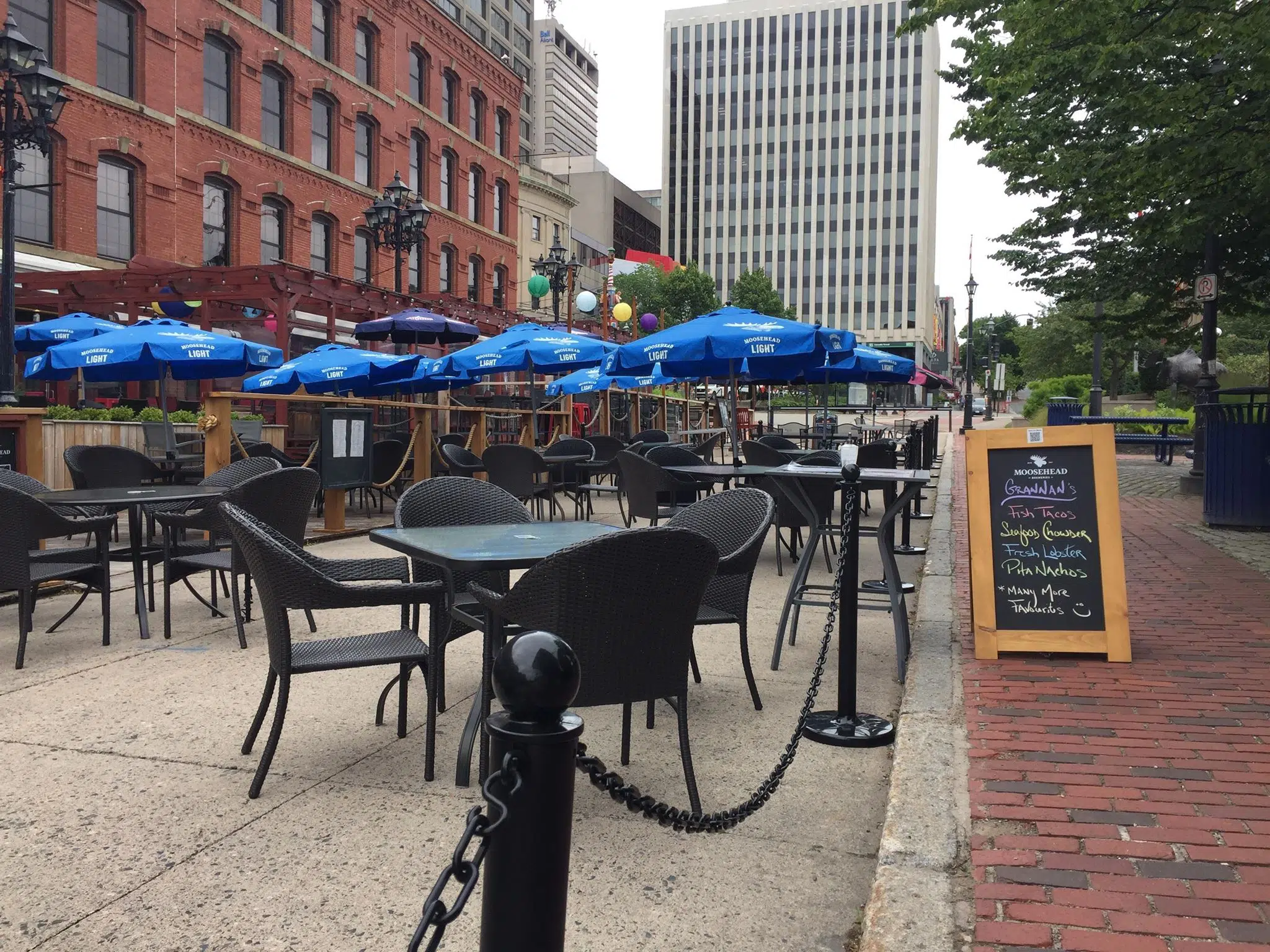
(photo by Tamara Steele)
Restaurant sales in New Brunswick decreased by 20 percent in 2020 compared to 2019, according to new data from Statistics Canada and Restaurants Canada
2019 saw $1,274,900,000 in restaurant sales and 2020 numbers came out to $1,019,600,000, resulting in a loss of approximately $255,000,000.
The dramatic loss in sales can, of course, be directly tied to the COVID-19 pandemic that resulted in lockdowns and restrictions for restaurants throughout the year.
“I just think it’s so important to stress how important restaurants are for every single community in New Brunswick,” said Luc Ervajec, the Vice President of the Atlantic Region for Restaurants Canada. “It’s desperate and we ask that they support the industry however you feel comfortable. Takeout, delivery, curbside, dine-in, whatever you can do please support.”
Full-service restaurants, such as sit-down, were impacted dramatically more than quick-service ones, such as fast food.
From March to October 2020, quick-service restaurants reported an average loss of 14.5 percent compared to March to October 2019, while full-service restaurants reported an average loss of 33.4 percent compared to March to October 2019.
Catering services saw an even more dramatic loss in revenue. From March to October 2020, catering sales were reduced by an average of 55 percent compared to March to October 2019.
Drinking establishments, such as bars, saw an average loss of 34.6 percent from March to October 2020. The most significant losses came from April and May when the province was in the red phase of recovery, losing 95 percent and 80 percent of their revenue in each respective month compared to the year prior.
The Restaurant Outlook Survey conducted by Restaurants Canada in December showed 65.6 percent of New Brunswick restaurants are operating at a loss, while 19.3 percent are breaking even. This means only 18.3 percent of restaurants are making a profit pre-tax, with only 5.2 percent reporting a pre-tax profit of 5 percent or more.
While jobs in restaurant service were down by nearly half in April 2020, there is a trend towards returning to pre-pandemic levels. In February 2020, there were 21,600 restaurant jobs reported, while in December 2020, there were 20,000 reported restaurant jobs in the province.
Ervajec says that while the reported number is promising, the report may have been completed before the province began seeing an increase of cases in December.
“Timing is everything, and New Brunswick is showing you’re down only about 2,000. I think that it might have been right in that sweet spot when the province was in yellow,” he said.
The recovery for restaurants across New Brunswick is expected to be slow, with Restaurants Canada not projecting a return to full 2019 levels of sales until 2023. According to Erjavec, the recovery will be particularly slow for full-service restaurants.
“When I look at 2020, full-service restaurants will probably be down 30 percent, quick-service restaurants will be down about 10 percent. In 2021, we’re predicting full-service restaurants will be down in the range of 20 percent, quick service will be close to breaking even. In 2022, full-service restaurants will likely still be down 7 or 8%, quick-service restaurants will be in the positives. So, it’s only 2023 where the industry is back at the 2019 levels,” he said.
Ervajec urges everyone to support their local restaurants however they can as they continue to navigate the crisis.
“When you help a restaurant, you’re helping the local farmer, the local fisher, the local brewer, the electrician. The industry probably supports your neighour, your kid’s hockey team or soccer team so I’d just urge your readers to support this industry,” said Ervajec. “We need your help.”
Liam Floyd is a reporter for Huddle, an Acadia Broadcasting partner.






